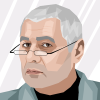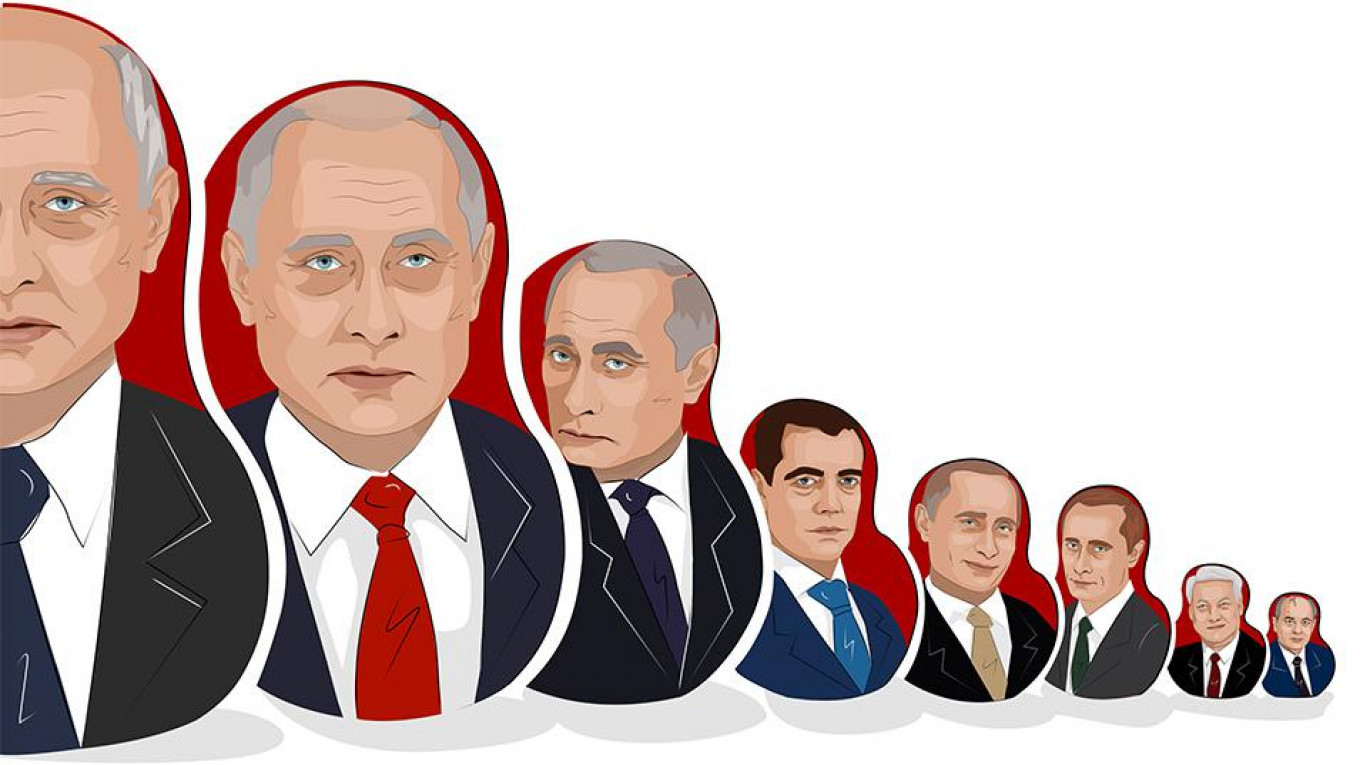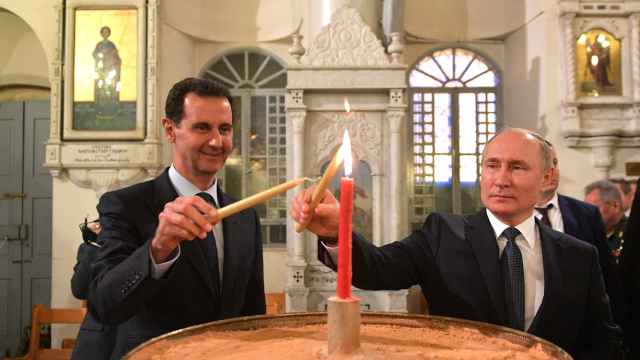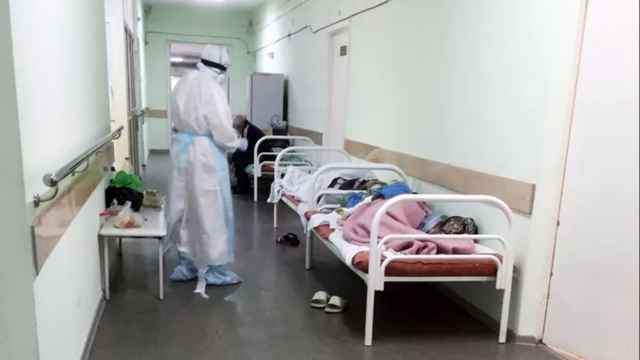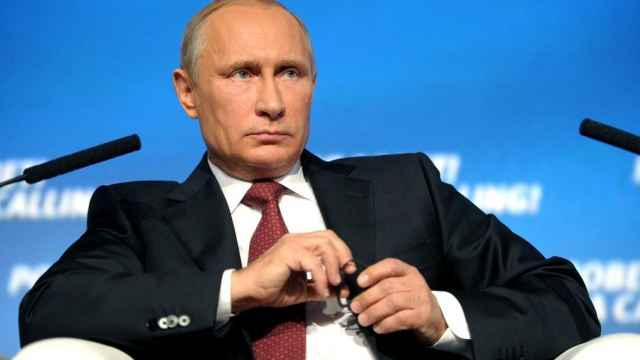In late 2016, just as he was all but forgotten, Alexei Navalny announced his presidential bid, forcing Russian politics into the spotlight. His campaign has been the longest in Russian history, but are his rallies proof that President Vladimir Putin has lost his grip on power? Of course not. So why even talk about it?
On Telegram, political insiders continue to obsess over rumors from within the presidential administration. But these Kremlin leaks no longer reflect the political landscape. The authorities are merely putting new clothes on an old presidency — a task so uninteresting that students in Kazan had to be cajoled into meeting Putin. Spin doctors have been dispatched to the regions to help — but with what?
Electing Putin in Putin’s Russia is about as difficult as shooting a large fish in a very small barrel.The key to understanding Russia’s political future does not lie with Putin, but with his fatally weak administration.
Solving problems used to be easy: Putin would send one of his friends to speak to another and had them report back. But with money tight these days, there is little to discuss or arbitrate. Of course, Putin cannot just stop overseeing the interests of Russia’s elite entirely.
The difference with before is that he has become an obstacle to the process, not a facilitator, because no one can assume his role without undermining his authority. The way the power hierarchy in Russia is organized means the quest for the next president is a bad joke: Everyone understands that while Putin may hand over the nuclear codes, he won’t give up his role as arbiter-in-chief.
Meanwhile, the fate of Putin’s most trusted inner circle depends entirely on him staying in the Kremlin. For them, prolonging his presidency is of primary importance.
But there is nowhere to discuss the succession question: not in Kremlin circles, not anywhere, except maybe on a yacht far out at sea with fellow billionaires. As a consequence, there is also little progress on the important question of who will head the government after the elections.
Whoever replaces Prime Minister Dmitry Medvedev will automatically be seen as Putin’s intended successor. Naturally, that person will look to strengthen the government. Putin, of course, can easily keep that process in check, but weakening the Cabinet will make it impossible to push through much-needed reform.
Just consider the failure of Putin’s “May decrees.” Having first adopted an unrealistically ambitious reform program, Putin then deprived the government of the ability to act without constantly looking over its shoulder at a suspicious Kremlin.
Under Boris Yeltsin, we in the Kremlin understood that picking a successor was more than just selecting a name. Yeltsin put in place all the necessary mechanisms and resources for his successor, even before he knew the identity of the frontman. That sort of preparation is now lacking in the Kremlin.
And so ahead of the March 18 presidential elections the Kremlin is already burdened with an issue it cannot even discuss in public: that of who will come after Putin.The program for the next six years still has to be decided and already its main instrument, a strong executive branch, is absent.
Medvedev’s shaky Cabinet is powerless to do anything of substance, but will nonetheless serve as the arena for infighting around a weak president. If that shaky government is also tasked from above with putting through reforms, the country will find itself in a perfect storm of administrative chaos.
Such an inherently unstable ruling regime will not last more than a year or two. Putin is no longer the solution to any of the problems facing Russia, even the problem of picking his own successor.
He himself poses a problem to his inner circle, which cannot exist without him. Sooner or later, this game without rules or referees will breakout onto the political surface which Navalny has exposed.
The looming conflicts in this Kremlin drama are as inevitable as their ultimate resolution is veiled.
Gleb Pavlovsky is a political scientist and a former aide to Boris Yeltsin. The views and opinions expressed in opinion pieces do not necessarily reflect the position of The Moscow Times.
This article first appeared in our special “Russia in 2018” print edition. For more in the series, click here.
A Message from The Moscow Times:
Dear readers,
We are facing unprecedented challenges. Russia's Prosecutor General's Office has designated The Moscow Times as an "undesirable" organization, criminalizing our work and putting our staff at risk of prosecution. This follows our earlier unjust labeling as a "foreign agent."
These actions are direct attempts to silence independent journalism in Russia. The authorities claim our work "discredits the decisions of the Russian leadership." We see things differently: we strive to provide accurate, unbiased reporting on Russia.
We, the journalists of The Moscow Times, refuse to be silenced. But to continue our work, we need your help.
Your support, no matter how small, makes a world of difference. If you can, please support us monthly starting from just $2. It's quick to set up, and every contribution makes a significant impact.
By supporting The Moscow Times, you're defending open, independent journalism in the face of repression. Thank you for standing with us.
Remind me later.

